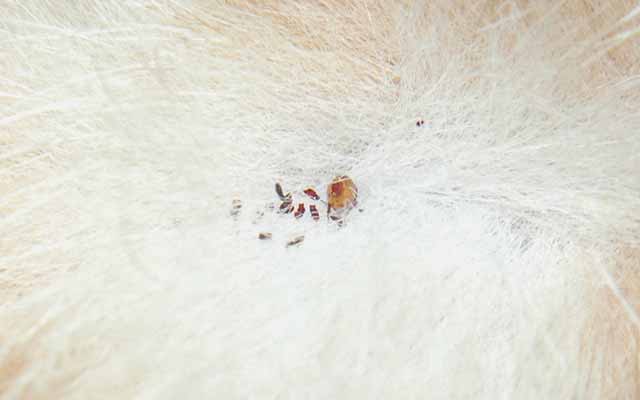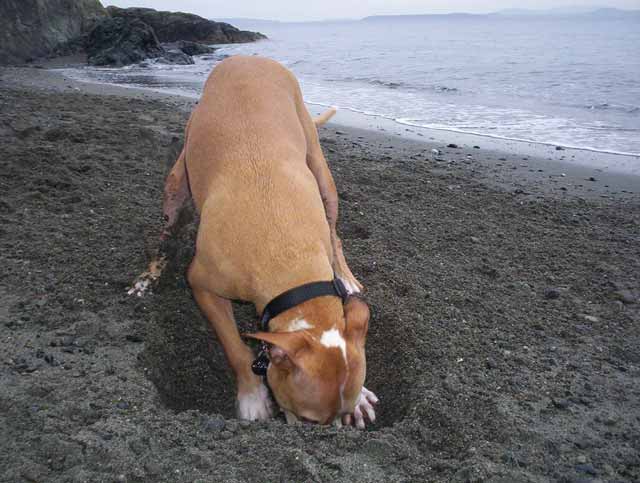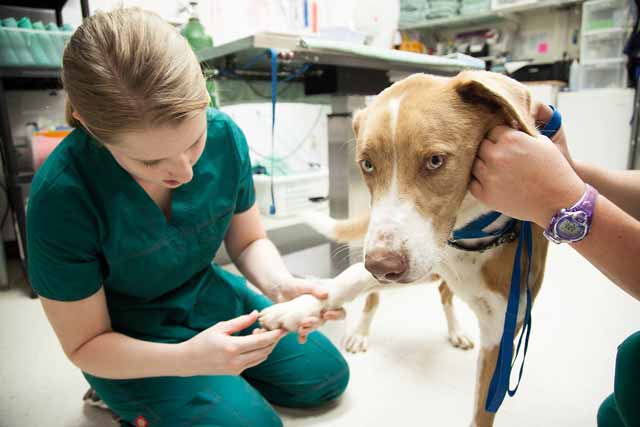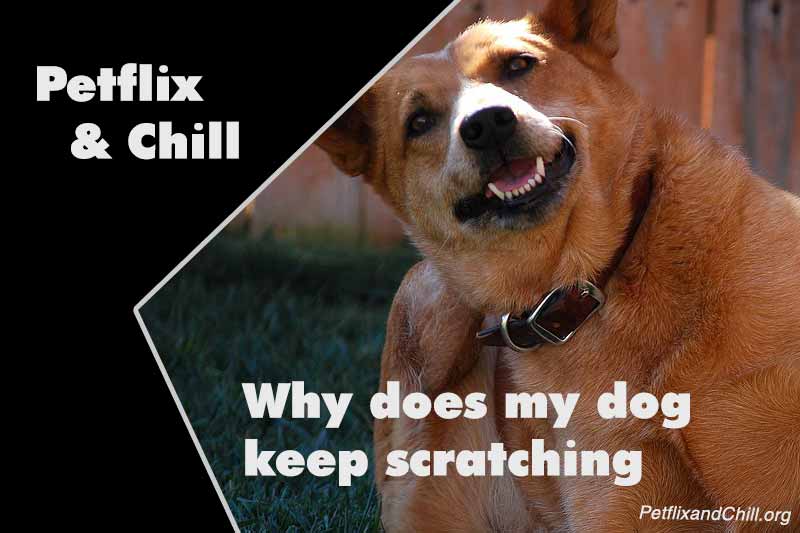Is your dog constantly scratching, even when you see no fleas? If it’s your first having a puppy friend, you may be unsure what to do, right? You’re not alone. Many pet parents also ask the same question: Why does my dog keep scratching? The answer is not simple. In fact, there are several reasons for this phenomenon, like pesky parasites or allergies.
Are you wondering the exact culprits behind your dog’s nonstop itching? What can you do to help your furry buddy find relief fast? Dive into this article from Petflix and Chill right now to break down everything you want to know!
Why Does My Dog Keep Scratching?
“Why is my dog always scratching?” Check out the top seven root causes below:
Cause 1: Fleas, Ticks, and Mites

One of the leading reasons causing your dog to scratch constantly is external parasites such as fleas, ticks, or mites. These tiny pests irritate the skin and can trigger serious health problems without immediate and proper treatment.
Among the various causes of itching in dogs, fleas are usually the most prevalent. They often concentrate near the base of your pet’s tail but may spread across its body. The good news is you can easily spot these pests. They usually appear as small black specks on the fur or bedding.
Ticks are another major issue. These tiny, flood-feeding arachnids often attach to the dog’s neck, ears, and skin folds. Ticks can cause local irritation and even transmit serious illnesses like Lyme disease. In some worse cases, dogs may suffer from fatigue, anemia, or organ damage.
And if you wonder, “Why is my dog scratching his ears?” mites (spider-like parasites) cause painful ear infections. Your dog may shake its head and scratch until the skin bleeds. Sometimes, you can spot dark ear discharge in your pet’s ears, quickly leading to yeast infections.
Cause 2: Allergies (Environmental, Food, Contact)
Why is my dog constantly scratching? If you ask yourself this question and can’t find the reasons, allergies can be the culprits of nonstop itchiness. These reactions often come from everyday things inside or outside your home.
For instance, environmental allergies affect many dogs year-round or seasonally. Common triggers are dust, mold, grass, pollen, dander, or smoke. These allergens enter through the animal’s skin, not the nose. If your pet’s immune system becomes overly sensitive, it may trigger itchiness and skin inflammation. That’s why you find your dog keeps scratching its belly, face, and paws.
How can you tell if your dog is suffering from allergies caused by the environment? Watch out for the following signs:
- Constant scratching
- Skin redness or darkening
- Repeated skin infections
- Recurring ear infections
Food allergies also lead to itching. In these cases, your pet’s immune system sees specific food proteins as dangerous. Your pet may react to certain ingredients in its diet, such as beef, dairy, wheat, and chicken. Besides, food intolerances are common in dogs and affect their skin and digestive system.
Typical signs of food-related issues include:
- Itching around the paws or ears
- Hives or bumps
- Frequent ear or skin infections
- Diarrhea
- Vomiting
Cause 3: Skin Infections
Besides the reasons above, your dog’s itchy skin can indicate a skin infection. Yeast and bacterial infections are common in these animals and may lead to redness, discomfort, and constant scratching.
If your pet suffers from hormonal imbalances or allergies, it is often more likely to develop skin infections. In some cases, it can experience hormonal diseases, like hypothyroidism, making it easier for bacteria and yeast to grow and spread.
Skin infections in dogs often appear as red, inflamed patches and other following signs:
- Irritated skin
- A bad odor
- Hair loss in affected areas
- Scabs or sores
Cause 4: Mange

Microscopic mites cause this severe skin condition. There are types of mange in dogs:
- Scabies (Sarcoptic mange): It is highly contagious and spreads quickly through contact. It can trigger severe itchiness and make dogs scratch relentlessly.
- Demodex (Demodectic mange): This type isn’t contagious. It happens when a natural skin mite multiplies out of control. These pests live in hair follicles and don’t cause problems unless the immune system is weak.
If your dog has mange, check out these common signs:
- Severe itching
- Crusty skin on elbows, back legs, or ears
- Hair loss
- Redness
Cause 5: Canine Atopic Dermatitis
Why does my puppy keep scratching? It may experience Canine Atopic Dermatitis (a chronic, inherited skin condition in dogs causing itchiness).
Why this problem? The dog skin may react to allergens such as grass, pollens, or molds with an exaggerated immune response, which causes discomfort or even skin damage.
You can find the symptoms of this skin condition appearing on your pet early, typically between six weeks to 3 years. However, the bad news is the problem will persist throughout the dog’s life.
Cause 6: Endocrine disorders

Why is my dog scratching so much? It may suffer from endocrine disorders, which affect the glands producing hormones. These hormones help regulate coat quality, skin health, and immune function. The failure of the glands means skin problems may happen.
The symptoms of endocrine disorders often include:
- Dry skin
- Frequent infections
- Hair loss
- Dull or patchy coat
- Weight gain
- Behavioral changes
Cause 7: Dry Skin and Weather Changes
Seasonal shifts also impact your dog’s skin health. That’s why it experiences dryness, allergic reactions, or irritation as the weather changes.
For example, cold winter air and indoor heating reduce skin moisture, resulting in itching and flakiness. In contrast, summer heat increases sweat in skin folds and paws, encouraging bacterial buildup.
Common signs to watch include:
- Dry, flaky patches
- Excessive scratching
- Irritated skin
- Dull coat
Read more: Why Dogs Bark At Night: 7 Common Reasons and What You Can Do
Why Does My Dog Keep Scratching The Carpet?
It might seem random, but when you see your dog repeatedly scratching the carpet, there are some reasons behind it. Below are common causes for your question, “Why is my dog scratching the carpet?”
Instinct

Some dog breeds, like terriers, are natural diggers. Their nature is to burrow into tight spaces and hunt rodents. Scratching the carpet can be a leftover instinct behavior from their ancestors.
Boredom
Dogs need mental and physical stimulation. They tend to scratch to release energy and grab your attention if understimulated. This behavior often happens if you ignore your pet for an extended period.
Anxiety
Loud noises can make your dog anxious and stimulate scratching. Why? Scratching mimics digging to escape or create a safe space, which helps it feel secure in the face of perceived threats.
Excessive Energy
If your dog belongs to a high-energy breed, it often needs more regular physical and mental activities than others. It may scratch to release excessive energy if it doesn’t get enough.
Medical Issues

Why is my dog scratching the floor? Older dogs or those with joint paint may scratch the carpet or floor because of discomfort. This behavior may help distract them from pain or medical conditions.
Nail Filing
Why is my female dog scratching the floor or carpet? She is mail filing. Overgrown nails can cause discomfort. Scratching rough surfaces helps dogs naturally trim their claws when they get too long.
Scent Marking
Why does my dog keep scratching the floor? It tries to leave the scent through glands in its paws. When you see your dog scratching the carpet, it is marking its territory and communicating its presence to other pets in your home.
How Do I Stop My Dog From Scratching?

Constant scratching is frustrating for your dog. Consider the following solutions to provide long-lasting relief:
Shampoo
Use a gentle, hypoallergenic shampoo. You should regularly bathe your dog to help soothe the skin and wash away allergens trapped in the fur.
Parasite Control
You can consider using vet-recommended flea and tick treatments monthly. Topical medications often provide 30-day protection. Also, it’s essential to clean bedding to eliminate pests from the environment.
Check Food
If your dog experiences food allergies, it may need a special diet. A veterinarian can guide a trial to identify and eliminate problematic ingredients. This helps reduce skin reactions and discomfort.
Remove Secondary Infections
Itchy skin often leads to open wounds and infections. Look for signs such as bumps, bad smells, or crusts. These symptoms require immediate veterinary care.
Home Remedies
Besides the above solutions, simple home care can support healing your dog. For example, coconut oil and oatmeal baths may ease mild itching. However, always ask a vet before trying any new treatment.
When to Visit the Vet?

Not all scratching is harmless. Some signs mean it’s time to get help from a vet. If you find scratching interferes with your dog’s sleep, the cause could be more serious. Open wounds, strange smells, and skin damage from the skin or ears often indicate an infection. These symptoms answer your concern: why does my dog keep scratching his ear?
Additionally, behavioral changes may signal discomfort. Watch for hair loss, which could suggest parasites.
If your dog shows any signs above, it’s time to visit a vet to prevent skin issues. Remember, early action protects your furry friend’s health and comfort.
Popular Article:
FAQs
Why does my dog keep scratching himself?
Frequent scratching may signal allergies, parasites, dry skin, or an underlying skin condition.
Why is my dog scratching the bed?
Your dog is trying to create a comfortable spot or mark it with its scent from glands in its paws.
Why is my female dog scratching the floor?
This behavior can be instinctive nesting, a sign of boredom, or a way to release anxiety or energy.
Why is my dog scratching the floor at night?
Nighttime scratching in dogs can be a sign of stress, restlessness, or an attempt to feel secure in a sleeping area.
Why is my puppy scratching so much?
Puppies often scratch due to fleas, food sensitivities, or adjusting to new environments.
In A Nutshell
Have you solved your question, “Why does my dog keep scratching?” As you can see, this behavior isn’t always just a simple itch; it can signal anything from allergies and anxiety to severe skin conditions. Therefore, you must identify the root cause to give your dog real relief. Don’t ignore ongoing scratching. Take action early, use the tips shared above, and consult a vet if needed!








Thank you for sharing this very useful information, it helped me understand why my dog keeps scratching his ears.